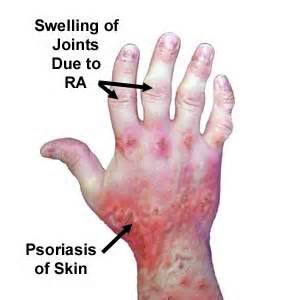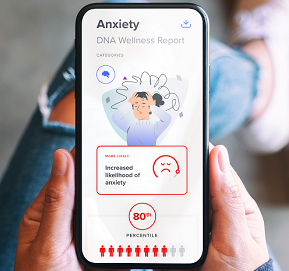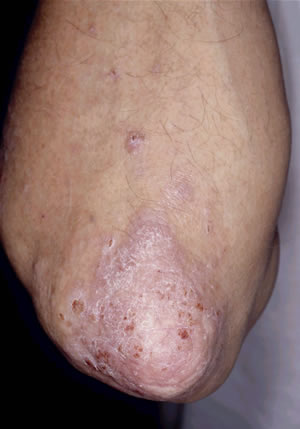Antibiotics for Psoriasis: Treating Psoriasis with Topical and Oral Antibiotics
Psoriasis and Antibiotics: Clarifying Misconceptions
Psoriasis is not an infectious disease, unlike other skin conditions. While antibiotics can sometimes play a role in managing psoriasis, they are not a primary or standard treatment. It's important to clarify that antibiotics do *not* kill T cells. T cells are a crucial part of the immune system, and while they are involved in the development of psoriasis, antibiotics do not target them. Antibiotics are used to treat bacterial infections, not autoimmune conditions like psoriasis.
In some cases, a streptococcal infection (like strep throat) can trigger guttate psoriasis. In these specific instances, antibiotics may be prescribed to treat the underlying infection, which can help improve the psoriasis symptoms. However, this is treating the trigger, not the psoriasis itself. High doses of antibiotics are not a standard procedure for psoriasis outbreaks. Antibiotics for Psoriasis.
Topical and oral antibiotics are used for various bacterial infections, but they are not typically used as primary treatments for psoriasis. It is crucial to consult with a dermatologist for accurate diagnosis and treatment of psoriasis. Self-treating with antibiotics is not recommended and can be harmful.
Natural Antibiotics in Foods
Topical Antibiotics for Psoriasis
Corticosteroid
This medication consists of antibiotic as well as disinfectant which maintains swelling of skin in its full control, making it among one of the most searched for antibiotic therapy for psoriasis. Less turn overs are located in the cells and also body immune system is maintained under control. Physicians suggest using this certain lotion two times in a day as well as not even more compared to that.
Topical Corticosteroid is additionally categorized as a type of steroids as well as lengthy- term usage of this lotion thins down the level of the skin and also could trigger various other troubles for the skin. Stay clear of suddenly terminating using this drug as it could subsequently trigger your psoriasis to flare. Prescription antibiotics for Psoriasis.


Imidazole
Imidazole and Psoriasis: Clarifying Its Role
The statement about imidazoles and flavohemoglobins protecting bacteria from nitric oxide is accurate. However, the rest of the information regarding imidazole antibiotics for psoriasis requires significant clarification.
Imidazoles are a class of antifungal medications, *not* antibiotics. They are not used to treat psoriasis, which is an autoimmune condition, not a bacterial or fungal infection. While some imidazole antifungals are available in cream form, they are used to treat fungal skin infections, not psoriasis. Applying an antifungal cream to psoriasis will not be effective.
The claim that imidazole antibiotic treatment is highly successful for psoriasis with long-lasting clearing is incorrect. There is no evidence to support this claim. Imidazoles do not treat psoriasis.
Furthermore, the statement that this form of antibiotic is to prevent and treat only bacterial infection on the skin, like psoriasis, is also incorrect. Psoriasis is not a bacterial skin infection. And, as mentioned previously, imidazoles are antifungals, not antibiotics.
Finally, the phrase "works best on an empty" is incomplete and lacks context. It's important to follow the instructions provided with any medication, including antifungal creams. However, applying an antifungal cream to psoriasis is not appropriate.
In summary, using imidazole antifungal creams for psoriasis is not recommended. Consult a dermatologist for accurate diagnosis and treatment of psoriasis. Self-treating with any medication, including antifungals, can be harmful.
Oral Antibiotics
Rifampin

Clarifying Rifampin Use and Psoriasis
The provided information contains inaccuracies regarding rifampin and its use in psoriasis. Let's clarify:
Rifampin is an antibiotic, meaning it is effective against bacterial infections. However, psoriasis is *not* a bacterial infection, but rather an autoimmune condition. Therefore, rifampin is not typically used to treat psoriasis itself.
While rifampin can be used to treat bacterial skin infections, it's crucial to understand that it will not treat psoriasis. The statement that this form of antibiotic is used to treat skin infections "like psoriasis" is misleading.
Regarding administration, rifampin is typically taken orally, not applied to the skin. It is usually taken with a full glass of water, and while taking it on an empty stomach can improve absorption in some cases, it's best to follow the specific instructions provided by your doctor or pharmacist. Evenly spaced intervals are important for maintaining consistent blood levels of the medication, and completing the full course of antibiotics is crucial, even if symptoms improve, to prevent antibiotic resistance. Antibiotics for Psoriasis
Stopping antibiotics prematurely can indeed allow bacteria to continue growing and potentially lead to more resistant infections. However, this is relevant only when treating bacterial infections, not psoriasis.
Consulting a physician or doctor for the correct prescription and dosage is essential for any medication, including rifampin. Incorrect dosages can lead to various side effects, including those mentioned, such as heartburn, nausea, and menstrual changes. Other potential side effects of rifampin can include liver problems, changes in urine color, and flu-like symptoms. Always consult a healthcare professional for accurate information and guidance on medication use.
Zithromax
Zithromax and Psoriasis: Clarifying Its Use
The information provided about Zithromax (azithromycin) and its use in psoriasis needs clarification.
Zithromax is a macrolide antibiotic, and it does work by inhibiting bacterial protein synthesis, thus preventing bacterial growth. However, psoriasis is an autoimmune condition, *not* a bacterial infection. Therefore, Zithromax is not a standard treatment for psoriasis. While it may be prescribed in specific cases where a bacterial infection triggers or complicates psoriasis, it doesn't treat the underlying cause of psoriasis itself. The statement that Zithromax prevents heightened bacteria and skin growth in psoriasis is inaccurate.
It's true that Zithromax is often recommended to be taken with food to reduce stomach upset. It's also correct that it should not be taken with aluminum- and magnesium-based antacids, as these can interfere with its absorption.
Erythromycin is indeed in the same class of antibiotics as Zithromax (macrolides). However, like Zithromax, it is not a primary treatment for psoriasis.
It's crucial to consult with a dermatologist for accurate diagnosis and treatment of psoriasis. Self-treating with antibiotics is not recommended and can be harmful. Using antibiotics inappropriately can contribute to antibiotic resistance, making them less effective against bacterial infections when they are truly needed.
 Psoriasis on the ellbow
Psoriasis on the ellbowLevaquin
Levaquin and Its Use: Clarifications and Important Information
Levaquin (levofloxacin) is a fluoroquinolone antibiotic, *not* an antifungal. It works by inhibiting bacterial DNA replication and repair, preventing bacterial growth. It does *not* affect fungi.
The standard dosage of Levaquin can vary depending on the infection being treated. While once-daily dosing is common, it's crucial to follow the specific instructions provided by your doctor or pharmacist. Taking Levaquin at least two hours before or after antacids is correct, as antacids can interfere with its absorption.
It is essential to consult a physician or doctor before combining Levaquin with other medications, including over-the-counter drugs and supplements. Levaquin can interact with various medications, potentially leading to adverse effects.
The example provided about combining NSAIDs (like aspirin) with Levaquin leading to changes in blood sugar and increased CNS stimulation is not entirely accurate. While NSAIDs and Levaquin can both individually have side effects related to blood sugar and the central nervous system, their combination doesn't necessarily directly cause these specific interactions in a predictable or prominent way. However, combining them *can* increase the risk of certain side effects, such as seizures, and should be done only under careful medical supervision.
Some potential side effects of Levaquin itself can include tendon problems (including rupture), nerve damage, serious mood or behavior changes, and irregular heartbeat. It's crucial to discuss any potential risks and benefits with your doctor before taking Levaquin. Self-treating with antibiotics is not recommended.
Avelox
Avelox, a quinolone antibiotic, is used to treat bacterial infections, including secondary skin infections that can occur with psoriasis. Caution is advised when using quinolone antibiotics due to a risk of tendon damage, especially for individuals over 60. Generally, antibiotics are not a primary treatment for psoriasis because their effectiveness is often limited or nonexistent.
The Intricacies of Antibiotic Treatment for Psoriasis: Analysing the Risks, Costs and Efficacy
Antibiotic Resistance in the Treatment of Psoriasis
Over time, bacteria can develop resistance to antibiotics, making them less effective in treating psoriasis or any other bacterial infection. To mitigate this risk, patients should strictly adhere to their doctor's prescription, avoid unnecessary antibiotics use, and report any changes to their healthcare provider promptly.
Management of Potential Psoriasis Flare-Ups during Antibiotic Treatment
For those experiencing flare-ups or worsening symptoms during antibiotic treatment, the first step should always be to alert their health care provider. Meanwhile, implementing coping mechanisms like moisture-locking skincare routines, minimal consumption of alcohol, and avoidance of known triggers can provide some relief. Regular check-ins with healthcare professionals can greatly assist in managing psoriasis and adjusting the course of treatment as required.
In conclusion, while antibiotics can play a role in treating certain types of psoriasis, it’s essential to consider potential risks, costs, and efficacy and discuss with healthcare professionals to create an informed, comprehensive treatment plan. Moreover, embracing a healthy lifestyle and employing suitable management strategies for flare-ups can complement and enhance treatments.
Antibiotics and Psoriasis: A Comprehensive Guide
Potential Risks and Side Effects of Long-Term Antibiotic Use in Psoriasis Treatment
Long-term antibiotic use for psoriasis can have potential risks and side effects, including gastrointestinal issues, skin reactions, and severe allergic reactions. The emergence of antibiotic-resistant bacteria is another significant concern.
Financial Cost of Antibiotics Treatment and Insurance Coverage
Antibiotic treatment for psoriasis can be costly, varying depending on dosage and treatment duration. Many insurance plans cover medically necessary antibiotic treatments, but patients should verify their coverage details.
Interactions of Antibiotics with Other Psoriasis Medications or Treatments
Antibiotics can interact with other psoriasis medications or treatments, potentially reducing effectiveness or increasing side effects. Inform your healthcare provider about all medications and supplements you are taking.
Comparative Success Rate of Antibiotics for Psoriasis Treatment
Antibiotics are less successful than other psoriasis treatments like light therapy or topical treatments. They primarily target infections that may trigger psoriasis, not the condition itself.
Expectation Gauge: Timeline for Results from Antibiotic Treatment
Results from antibiotic treatment may be seen within a few weeks, but individual responses vary based on psoriasis severity, the specific antibiotic, and overall health. Regular consultations with your doctor are essential.
Antibiotic Treatment Suitability for Different Types of Psoriasis
Antibiotics may benefit some psoriasis types, like guttate psoriasis linked to strep infections, but not others. Determining the cause and type of psoriasis is crucial for effective treatment.
Natural Supplements: Lifestyle Changes Complementing Antibiotic Treatment
Lifestyle changes, including a balanced diet, regular exercise, and stress reduction, can complement antibiotic treatment and help manage psoriasis.
Suitability of Antibiotics for Psoriasis in Children, Pregnant Women, and Elderly Patients
Children, pregnant women, and elderly patients may require special consideration for antibiotic treatment due to potential risks. Consult with a healthcare provider to discuss individual medical histories and treatment plans.
Management of Potential Psoriasis Flare-Ups during Antibiotic Treatment
If flare-ups occur during antibiotic treatment, contact your healthcare provider. Coping mechanisms like moisturizing skincare, limiting alcohol, and avoiding triggers can offer relief.
Antibiotic Resistance in the Treatment of Psoriasis
Overuse of antibiotics can lead to antibiotic resistance. Adhere to your doctor's prescription, avoid unnecessary antibiotic use, and report any changes to your healthcare provider.
Conclusion
Antibiotics can play a role in treating certain psoriasis types, but consider potential risks, costs, and efficacy. Consult with healthcare professionals for a comprehensive treatment plan. A healthy lifestyle and appropriate flare-up management strategies can enhance treatment outcomes.
National Institute of Arthritis and Musculoskeletal and Skin Diseases
Sitemap in alphabetical order
More informations about treatments of psoriasis
 Psoriasis on the leg
Psoriasis on the legPágina de inicio
Mapa del sitio
Mapa del sitio en orden alfabético